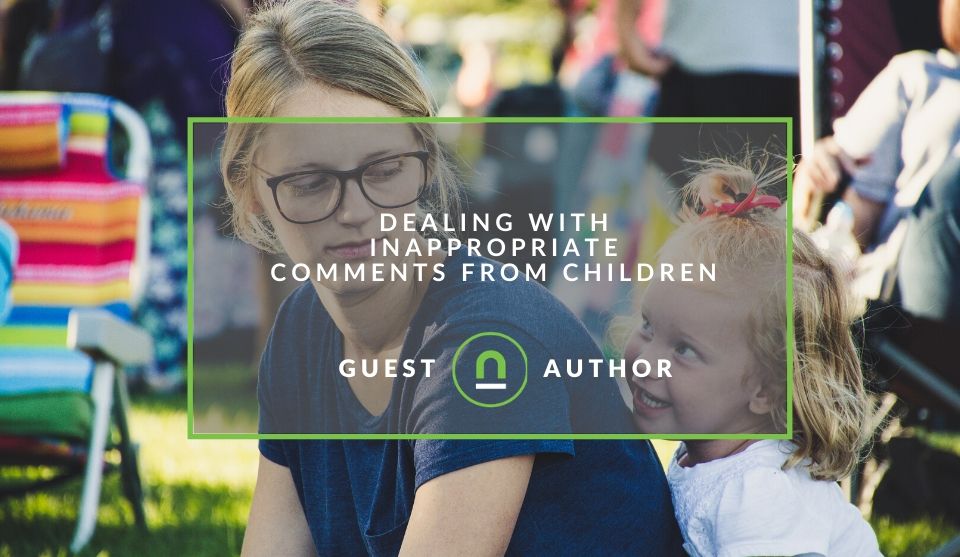Recent posts

Money Talks
XRP vs. Stablecoins: Which Is Better for Cross-Border Payments in 2026?
28 January 2026

Press Releases
Sleep Expert Cautioning Against TikTok’s ‘Mouth Taping’ Trend
28 January 2026

Press Releases
Why Vintage Watches Are the Hottest Trend in 2026
27 January 2026

Press Releases
Africaworks Accelerates The Rollout Of Real Estate Investment Platform
20 January 2026
Popular posts
Extravaganza
Trending Music Hashtags To Get Your Posts Noticed
24 August 2018
Geek Chic
How To Fix iPhone/iPad Only Charging In Certain Positions
05 July 2020
Extravaganza
Trending Wedding Hashtags To Get Your Posts Noticed
18 September 2018
Money Talks
How To Find Coupons & Vouchers Online In South Africa
28 March 2019
Dealing with Inappropriate Comments from Children
11 February 2020 | 1 comments | Posted by Alissa Zucker in Parental Guidance
There are a lot of cases when parents have to deal with inappropriate comments from children. Let me explain how to manage this kind of phrase in the real situation. My client was at the doctor's office with her 3-year-old when a hefty man and his children walked by. Her daughter roared, "That man's fat!"
She was mortified and immediately pulled her into an examining room and explained that it was not OK to say that kind of thing in front of someone. So how should she have handled this, and how can she prevent her from doing something like that again?
There probably isn't a parent alive who hasn't been embarrassed by something their young child blurted out. (I'll never forget a trip to the grocery store when my son said, "Mommy, that man's going to have a baby!" I wanted to sink through the floor.)
Immediate correction
She did the right thing by pulling her daughter aside right away and letting her know her comment was inappropriate. With young children, immediate correction is the only way they connect your teaching to their behaviour.
But you probably also know that it will take time for your children to learn this lesson. Young children are, by nature, impulsive. Without the internal censor that develops as they mature, they say whatever pops into their heads.
At 3, a child is only beginning to learn the effect her words have on others. She doesn't yet think naturally or easily about how others perceive her actions. It takes maturity and parental guidance for perspective-taking to develop.
Several things to do
1. Explain in simple language
Gently and correct your child when she says something likely to hurt or embarrass. As you did in this situation, take your child aside right way and explain in simple language that the other person might feel sad or hurt by what she said.
2. Ask about feelings
To help your child better understand the link between her words and others' feelings, ask her to think about how she feels when someone says something wrong about her. Teach her the concept "words can hurt." And help her learn to use her words gently.
3. Develop an appreciation
Please help your child develop an appreciation of individual differences among people, recognizing the beauty and worth of all people. However, they look. For example, choose books and videos that know diversity and avoid harmful stereotypes based on physical appearance.
4. Control your actions
Be conscious of the messages you and other family members convey through your own words and actions. Over time, your child will see how you value people of all sizes and shapes, and she will learn to do the same.
5. Look after your child
Sometimes you can be surprised with the words your child can say, but you have to be ready to deal with them. It is easy to do so if you know how to speak to your children.
In this case, you have to select appropriate words and explain how a person feels hearing this kind of words. Besides, you should control your actions to develop a child's appreciation of individual differences.
About the author
Alissa Zucker is a copywriter, working for the professional writing company Mcessay.com. She is interested in reading classic and psychological books which inspire her to write her articles and short stories.Tell us your story
Would you like to write for nichemarket just like Alissa has? Find out how to submit a guest post and when you're ready, you can contact us.
Are you looking to promote your business?
South African childcare businesses can create your free business listing on nichemarket. The more information you provide about your business, the easier it will be for your customers to find you online.
Registering with nichemarket is easy; all you will need to do is head over to our sign up form and follow the instructions. If you require a more detailed guide on how to create your profile or your listing, then we highly recommend you check out the following articles.
Recommended reading
If you enjoyed this post and have time to spare why not check out these related posts and dive deeper down the rabbit hole that is parenting.
- Why New South African Parents Should Consider Insurance
- All You Need To Know About South African Paternity Leave
- Breastfeeding and Expressing at Work in South Africa
- Trending hashtags for Mom and Baby
Tags: Parenting , Guest Post
You might also like
Africaworks Accelerates The Rollout Of Real Estate Investment Platform
20 January 2026
Posted by Nicolas Teisserenc in Press Releases
AWIP accelerates the rollout of its urban real estate investment platform in West Africa, raising €4m and fully deploying it into two off-market acqu...
Read more80% of Gen-Zers Would Marry an AI
19 January 2026
Posted by Steph M in Press Releases
Experts reveal why AI relationships are getting serious, and the reasons why 4 in 5 young people are open to marrying ai as human dating becomes too ...
Read more{{comment.sUserName}}
{{comment.iDayLastEdit}} day ago
{{comment.iDayLastEdit}} days ago
 {{blogcategory.sCategoryName}}
{{blogcategory.sCategoryName}}

